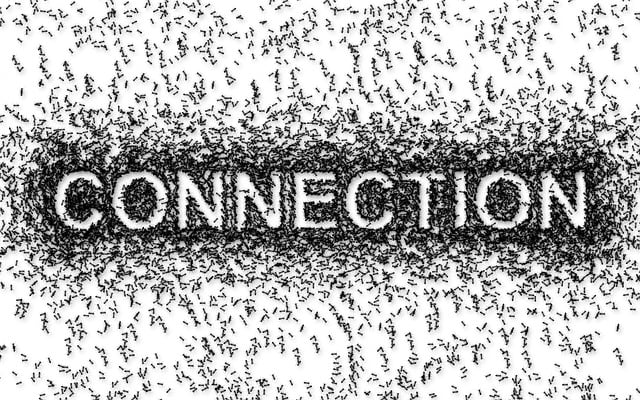During the recent Healing Through Writing Festival, Grace Quantock presented on the topic, Living Well with Chronic Illness. Grace maintained that people with chronic illness often have to deal with missed symptoms, explaining away illness, and social exclusion. She stated that it is often harder to gain belief from others than to deal with the symptoms themselves.
Grace identified an experience that I have had with diagnosis of chronic illness. She indicated that people with chronic illness can produce “exhaustive documentation” only to be ignored by medical professionals. In my case, I spent three hours documenting the major events and symptoms in my medical history over 10 years only to have an Allergist refuse to read the document or add it to my medical file.
The barriers to writing for healing
In a previous post, I explored the idea of memoir-writing for healing as proposed by Janelle Hardy. Grace argued that there are often barriers to our attempts to write as people with chronic illness. She suggested that isolation, both emotional and practical (in terms of access to information), creates a personal barrier.
The writing community itself can also establish barriers by promoting “a productivity culture” that is translated into words-per-hour or words-per-day (e.g. setting a goal of writing 2,000 words per day). The assumption, as Grace points out, is that writing is a linear process. However, people with chronic illness have a different relationship to writing time in that they can be intermittently or chronically disabled in terms of capacity to write. They may have impediments like brain fog, arthritic limbs, chronic fatigue and/or nausea.
Grace maintained that there is an assumption in the writing community, and especially amongst publishers, that writing has to “be a certain way”. There is a tendency to favour universal experience over individual stories – personal experience and coping strategies are often discounted. Writers with chronic illness can be blocked by literary gatekeepers who argue that their stories are “too niche” or “not literary enough”.
Grace suggested that we can too easily succumb to the expectations and standards of others by thinking that we “do not have the credentials” to write or “lack the recognition or prestige” required to publish. This mental barrier makes it harder for us to envisage our “own writer’s journey” (which will be unlike that of anyone else). Often relevant credentials are difficult to acquire because of lack of access to training and/or the availability of empathetic mentors.
She argued that the real or core questions relate to “what we hope for in the writing” and what will have the most positive impact for us.
Strategies for overcoming the literary barriers to writing with chronic illness
According to Grace, a starting point is to change our expectations of ourself in terms of written output but also in terms of healing outcomes. She warned that writing with the mindset “that writing has to fix us” (it must be “reparative”) can actually harm us. An “extractive mentality” can do us violence. She suggests that instead of trying to “write to heal”, that we view writing as “a way that is healing”. The process itself is healing; the healing outcomes are beyond our control. We have to move from an outcomes-focus to a process focus and write the best way we can, given our physical, mental and emotional states.
Contribution to a literary lineage
Grace suggested that we reframe the writing process by acknowledging that we are contributing to a “literary lineage” – writers with chronic illness – and, in the process, creating our own legacy. There are writers with chronic illness who have considerable literary achievements such as Alice Wong (with Lupus); Flannery O’ Connor (with Spinal Muscular Atrophy); and Virginia Woolf (serious mental health conditions). Over recent months, I have been inspired by Jennifer Crystal, author of One Tick Stopped the Clock: A Memoir, who contracted Lyme Disease from a tick bite. Jennifer is a weekly columnist for the Global Lyme Alliance, creator of the Writing to Heal Immersive Program, and story coach/facilitator for the Health Story Collaborative.
Grace argued that by writing with chronic illness we are creating documentation that can lead to personal and system change. By navigating the process of writing about difficult or challenging health situations, we are creating “words that will outlive us” and offering possible solutions or strategies for someone else experiencing chronic illness. She stated categorically that “the poem we write today might be a lifeline somebody else finds after our lifetime”.
Grace contends that our writing – whether as a novel, memoir, blog, poem or journal – can be a “springboard for the next person” as we can be offering alternatives and providing evidence of their efficacy. We can reframe our solitary writing as “part of a larger network” and a contribution to our “collective experience, collective tapestry and collective legacy”.
Cultivating our literary community
A strong theme throughout Grace’s presentation is her emphasis on networking within our writing community. She proposes three core strategies to take advantage of the mutual support and resources that can be available through such a network:
- Name three people who are part of your literary community. In thinking about this, I was able to name Annie Brewster, Jennifer Crystal, and Jennifer Harris. Annie is the creator of The Health Story Collaborative (HSC), designed to “harness the healing power of stories”. She is the author of The Healing Power of Storytelling: Using Personal Narrative to Navigate Illness, Trauma and Loss.
- Identify an element of their work that resonates with you. I have networked with each of the authors mentioned above when they have been facilitators for the monthly, online Creative Meetups, hosted by HSC. The Meetups are a network activity for writers with a chronic illness. Each of the facilitators have a profound knowledge of narrative therapy and a very strong commitment to helping people to heal through shared personal narratives.
- Exchange literary support with other members of your literary community, e.g. re-tweet, write supportive blog posts and create book reviews for members of your literary community. I have had correspondence with each of the previously mentioned Creative Meetup facilitators, and they have read my blog posts and poems and offered support and encouragement. I have also mentioned their work and promoted their writing in my blog posts, e.g. articles about Annie Brewster and Jennifer Crystal. The Creative Meetups themselves involve a community of writers who willingly share their stories and their writing. The participants offer supportive challenge and the constant encouragement to move towards healing.
Reflection
Grace has made me more aware that I am not writing alone as a writer with chronic illness and that I am not just writing for myself and my own health. As I become more aware of my participation in a literary community, I can become more conscious of how I can support, and be supported by, others in my literary community,
This newfound appreciation enhances my gratitude for my ongoing access to an understanding literary community where I don’t have to explain myself, defend my position or pretend to be someone other than who I am.
As we collaboratively grow in mindfulness through our reflections and writing, we can increase our connectedness, build our mutual support and deepen our insights.
____________________________________________
Image by Pete Linforth from Pixabay
By Ron Passfield – Copyright (Creative Commons license, Attribution–Non Commercial–No Derivatives)
Disclosure: If you purchase a product through this site, I may earn a commission which will help to pay for the site, the associated Meetup group and the resources to support the blog.




